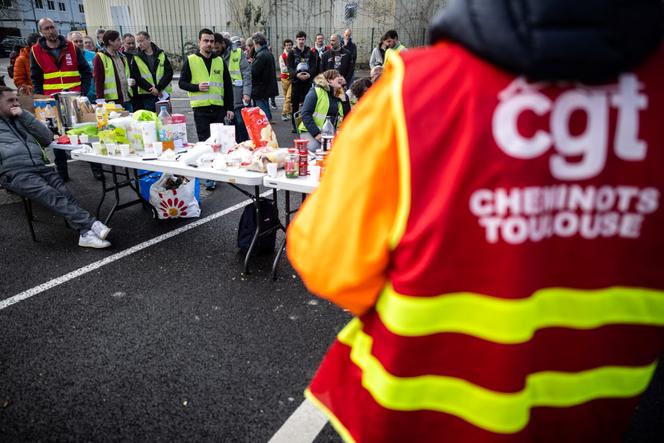


This will be the unions' last stand against the consequences of the 2018 law reforming the national rail markets, at the start of President Emmanuel Macron's first term in office, most notably opening the sector to competition. The four rail unions are calling for a strike on Thursday, November 21, and are planning a rolling movement to start on the evening of December 11.
While the 2018 law relieved SNCF of €35 billion of debt, it also transformed the national rail company SNCF from a "public institution of an industrial and commercial nature" into a limited company. That company, still 100% owned by the state, is itself a shareholder in a multitude of companies, including Fret SNCF, all independently managed.
For the four main unions – the CGT, UNSA, SUD-Rail and CFDT – this fragmentation of a once strong and unified group weakens its cohesion and commitment in the field. "We are mobilizing for the collective interest," insisted Thomas Cavel, the head of the CFDT's rail branch.
They know, however, that there's no turning the clock back. The liberalization process is gathering pace. On December 15, railway workers on the first TER regional lines to be opened up to competition will be transferred to new subsidiaries created for the occasion, even when SNCF has won the contract. On January 1, 2025, Fret SNCF employees will be transferred to two new entities.
Fret SNCF, the leader in rail freight transport in France, with 5,000 rail workers, is being forced to undergo a metamorphosis, not because of the 2018 law, but because of the European Commission's Directorate-General for Competition. The EU's executive has accused the company of having received €5.3 billion in illegal state aid between 2007 and 2019, and can force it to pay it back. To avoid this, the French government and the group's management decided to cut Fret SNCF's sales by 20%, leaving it to its rivals, and to split it into two entities on January 1, 2025: Hexafret, 4,000 people, which will take over the freight business, and Technis, 500 people, which will offer a locomotive maintenance service. The capital of Rail Logistics Europe, the umbrella company for these two companies, may be opened up to a public or private shareholder, with SNCF retaining a majority stake.
Fret SNCF's management insists that "all 500 employees who are not being taken over by either Hexafret or Technis have been offered a solution within the group." It also says that, by 2025, Hexafret will have recovered Fret SNCF's sales through internal growth and that it will have fewer social contributions to pay, since it is the SNCF group's head company that will finance the additional contribution to the special pension scheme for railway workers, in other words 12% of the payroll (between €18 million to €20 million each year). Hexafret will therefore benefit from the same conditions as its private competitors.
You have 56.21% of this article left to read. The rest is for subscribers only.
